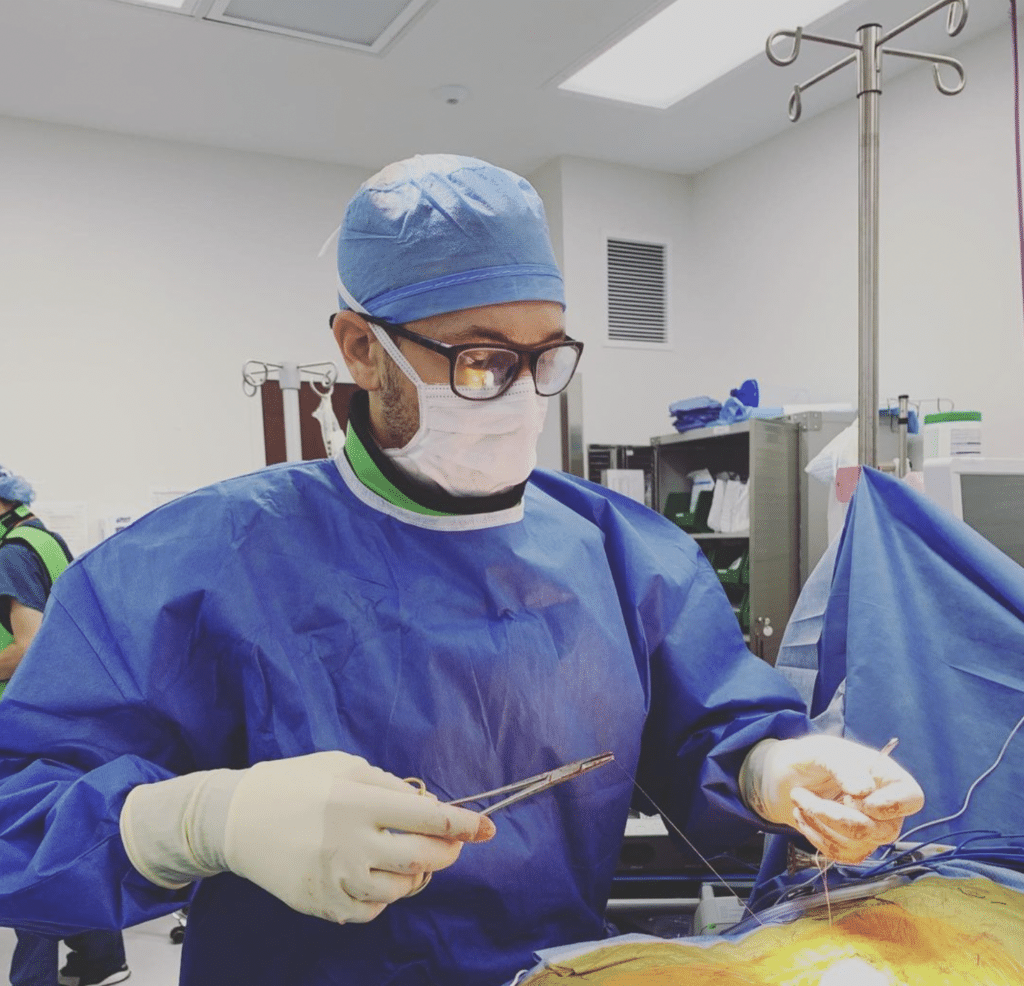Providing Safe and Effective Anesthesia Care
Anesthesia is a medical specialty that focuses on managing pain and maintaining vital body functions during surgical procedures or medical treatments. It involves the administration of medications to induce a state of temporary loss of sensation, consciousness, or both, allowing patients to undergo surgery or other interventions without feeling pain or discomfort.
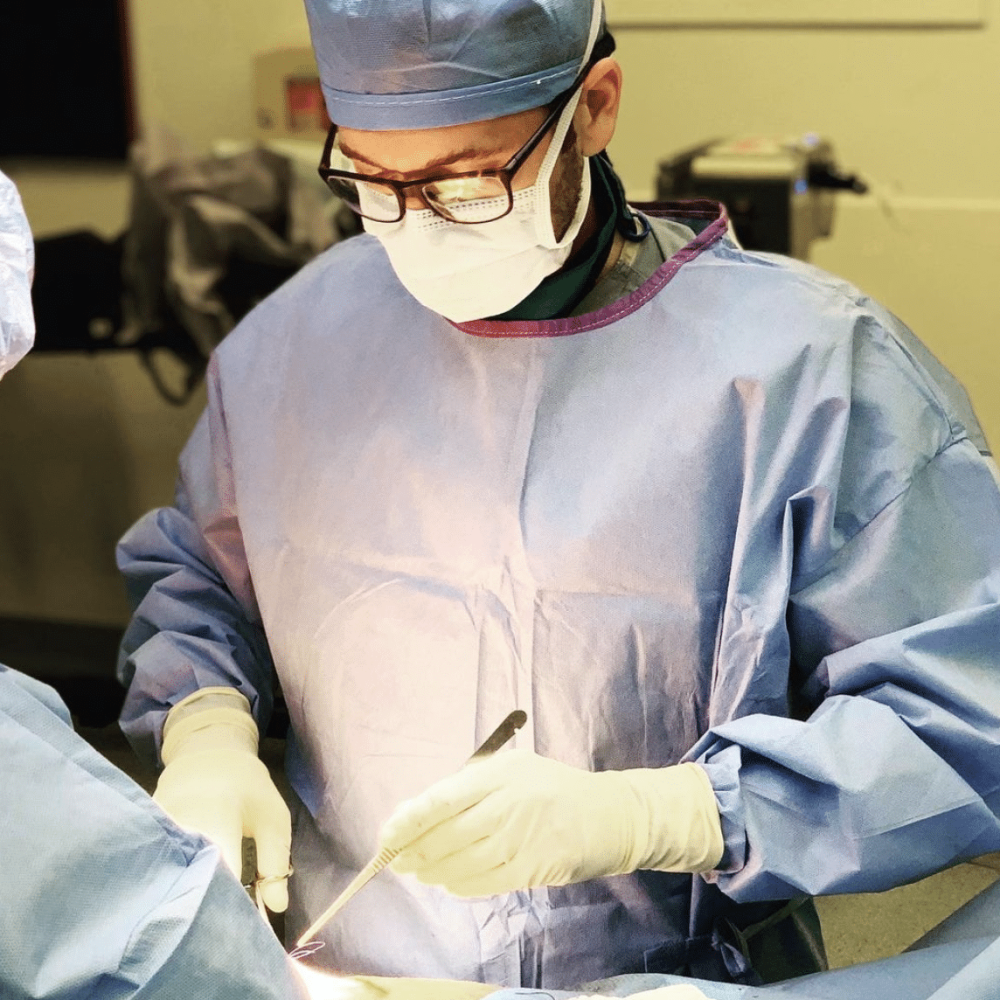
Dr. Tolga Suvar is a highly skilled anesthesiologist with years of experience in providing anesthesia services. He is dedicated to staying up-to-date with the latest advancements in the field, ensuring that patients receive the highest standard of care.
Before your procedure, Dr. Suvar will conduct a thorough preoperative assessment to evaluate your overall health, medical history, and any specific considerations related to anesthesia. This assessment helps ensure a tailored anesthesia plan that is safe and effective for you.
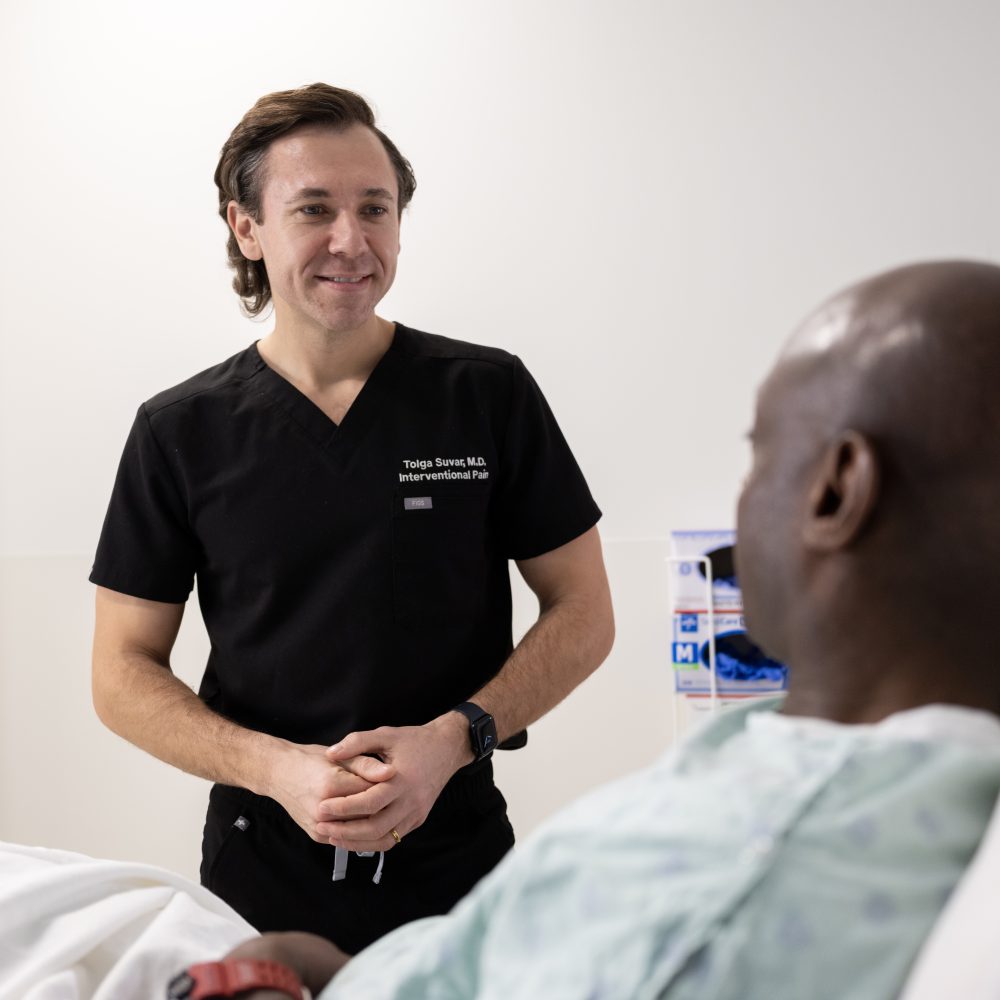
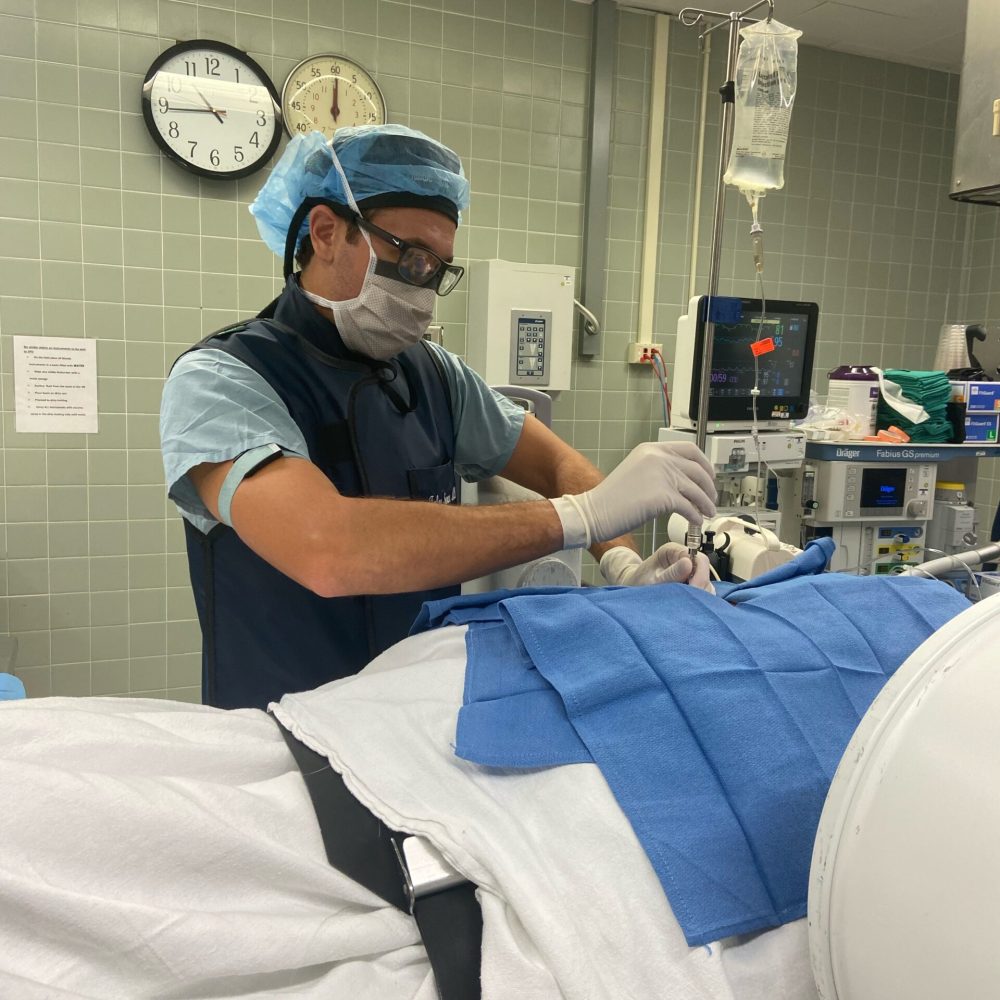
Dr. Suvar understands that each patient is unique, and anesthesia needs can vary. He will develop an individualized anesthesia plan based on your specific requirements, ensuring optimal pain management and safety throughout your procedure.
Dr. Suvar works in well-equipped facilities that prioritize patient safety and comfort. These facilities feature modern anesthesia equipment and monitoring systems to ensure precise administration and close monitoring of anesthesia during your procedure.
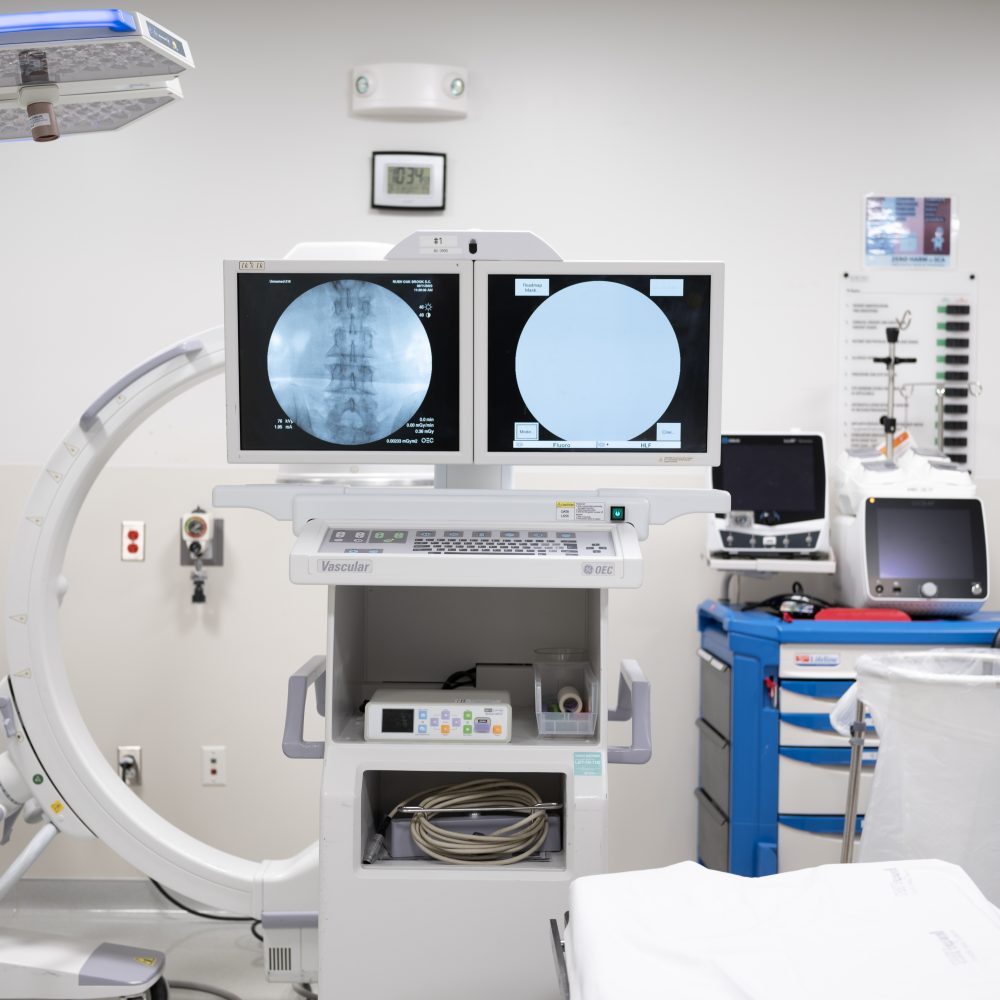
General Anesthesia
General anesthesia is provided to patients receiving surgery so that patients will not move, feel, or remember any part of the surgery. It is usually given by medicine that enters the intravenous catheter (IV) connected to your vein or by breathing a mask with special gas. Sometimes the combination of the two are offered. Your anesthesia team monitors your vital signs throughout the entirety of the surgical case. Some of the side effects include nausea and vomiting, drowsiness, sore throat, and pain after surgery.
Monitored Anesthesia Care
Sedation is a type of anesthesia also known as monitored anesthesia care. This anesthetic is commonly referred to as “twilight sedation.” You will feel drowsy and fall asleep during the procedure. Remembering some of the procedures is normal.
Sedation takes place through the peripheral intravenous catheter that is inserted into one of your veins. Medicine is administered, causing you to feel drowsy with the ability to recover relatively quickly compared to general anesthesia.
Side effects:
- Drowsiness
- Nausea
Like general anesthesia, it is essential to avoid driving or using heavy machinery and making any critical legal decision following these types of anesthetics for 24 hours. Also, refrain from consuming alcohol for 24 hours.
Regional Anesthesia/Nerve Block
You will have medicine injected under your skin. This numbs a small part of your body for the procedure. You may be awake, but comfortable, and remembering some parts of the procedure is normal.
It is common to have numbness or weakness for 24-48 hours until the nerve block wears off. During this time, do not drive or operate heavy machinery until the numbness has worn off and normal movement has fully returned. Drowsiness can exist, up to 12 hours after the procedure.
Dehydration is often the most common cause of nausea, and hydration can help rid these symptoms.
After the effects of the block has worn off, it is common to experience pain related to the surgery. Follow your surgeon’s instruction for pain medications. If the nerve block wears off in the middle of the night, you may wake up in a lot of pain. Some doctors suggest taking a prescribed pain medication prior to bedtime.
Side effects:
- Numbness or weakness
- Drowsiness
- Pain
Your safety is our top priority. Throughout your procedure, Dr. Suvar and his team will closely monitor your vital signs, including heart rate, blood pressure, oxygen levels, and anesthesia depth. Advanced monitoring technology ensures that any changes or potential complications are detected early, allowing for prompt intervention if needed.
Before Your Procedure
Prior to your procedure, our anesthesia team will carefully evaluate your medical history and review any medications you are currently taking. This comprehensive assessment allows us to tailor your anesthesia plan to ensure your safety and well-being throughout the procedure.
We will take the time to discuss the risks, benefits, and potential side effects of anesthesia with you. Our team is committed to providing clear and transparent information, addressing any concerns or questions you may have regarding the anesthesia process.
During Your Procedure
Rest assured that our anesthesia team will be diligently monitoring your vital signs throughout the entire procedure. This includes continuous monitoring of essential parameters such as heart rate, blood pressure, oxygen levels, and anesthesia depth. Your well-being and comfort are our top priorities, and we will be attentive to any changes or potential complications that may arise.
After Your Procedure
It is common to experience drowsiness for up to 24 hours following your surgery. To ensure your safety and optimal recovery, we kindly ask that you refrain from driving, operating a vehicle, or making any important or legal decisions during this time. It is also important to avoid consuming alcohol during the 24-hour period post-surgery.
For your well-being and to promote a smooth recovery, we recommend refraining from smoking or vaping. Staying hydrated by consuming plenty of fluids and eating as tolerated (unless otherwise directed by your surgical team) is essential. Should you require pain medication, please take it as prescribed by your surgical team to manage any discomfort effectively.
To facilitate your recovery, we encourage you to rest at home under the care of a trusted friend or relative. This will allow you to relax and give your body the time it needs to heal properly.
If you have any questions or would like to schedule an appointment for anesthesia services with Dr. Tolga Suvar, please contact our office. We are here to assist you and provide the highest quality anesthesia care for your medical procedure.
Note: The information provided on this website page is for informational purposes only and is not intended to replace professional medical advice. Please consult with Dr. Tolga Suvar or a qualified healthcare professional for personalized anesthesia recommendations based on your specific needs.
